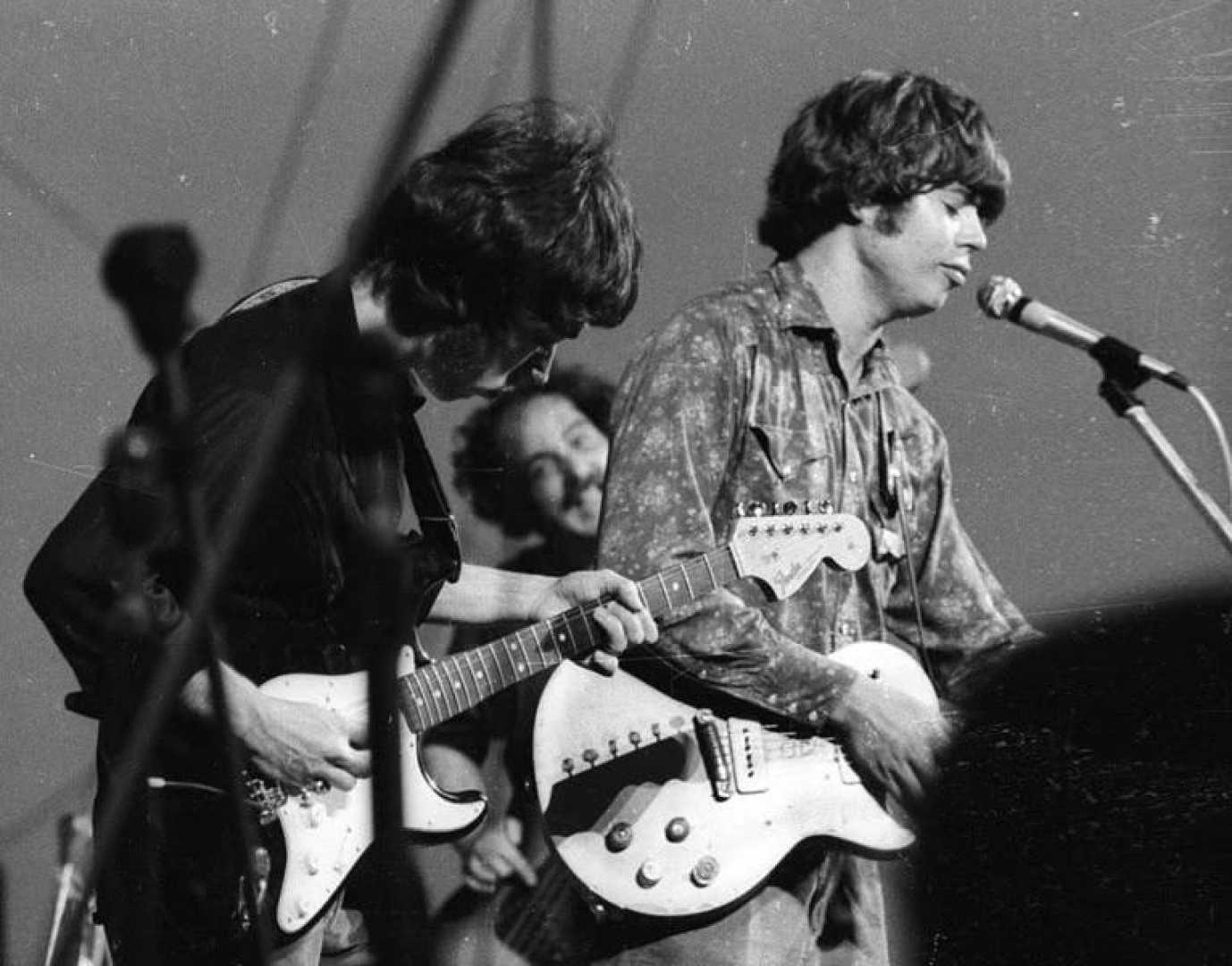Entertainment
Guitar Innovator Harvey Mandel Reflects on Woodstock and Career Highlights

SAN FRANCISCO, Calif. — Guitarist Harvey Mandel, known for his innovative sound, recently reflected on his early career milestones and his experiences performing at iconic events such as Woodstock. In a candid interview, Mandel shared insights about his development as a musician and his struggles within the industry.
Mandel first gained attention in the 1960s with his unique playing style characterized by heavy feedback and sustain. He joined Canned Heat and performed at Woodstock in 1969, a milestone he describes as ‘mind-blowing.’ He recalls, ‘I was kind of nervous; it was scary getting up on stage and seeing that massive audience. But it turned out good!’
After two years with Canned Heat, Mandel joined John Mayall‘s band, a transition complicated by the history of renowned guitarists Eric Clapton and Mick Taylor. Mandel said, ‘I didn’t want to copy other guys. I didn’t study their playing… but I pretty much stuck with my own style.’
His contributions to guitar techniques include early adoption of two-handed tapping, which he attributes to his time with the Pure Food and Drug Act group. ‘Randy Resnick, the second guitar player in that group, was the first I saw tap, in ’67 going into ’68,’ Mandel recalled. ‘I didn’t want to do it in front of him, but once I saw him do it, I was able to practice it.’
Despite his innovations, Mandel feels he did not receive the credit he deserved during the 1970s. ‘I’m sure I influenced many guitar players with the sustain and feedback,’ he noted. ‘I was doing it back in ’65, ’66, and ’67, way before I heard it with Jeff Beck and any of those people.’
A turning point in his career came when he received a late-night call from Mick Jagger in 1976 regarding recording sessions for the Rolling Stones‘ album Black and Blue. Mandel was flown to Germany where he recorded tracks including ‘Hot Stuff’ and ‘Memory Motel.’ However, his hopes of joining the band full-time were dashed due to Keith Richards‘ preference for Ronnie Wood.
‘If it wasn’t for Keith, I would have been the Rolling Stones’ replacement for Mick Taylor,’ Mandel lamented. ‘It would have been great if it had happened… My reputation jumped up dramatically, but then, the allure of the Rolling Stones wore out, and it tapered down.’
After facing medical setbacks that took him off the stage for four years, Mandel is optimistic about reviving his career and is currently preparing to release a new record. ‘I’ve recuperated and I’m back in top form,’ he said. ‘Hopefully it’ll get pushed and get me up there, so that people will remember who I am.’
Looking back on his experiences, Mandel emphasizes the importance of creativity and staying true to one’s musical identity. ‘The sound I was aiming for was kind of like a violin, and it just developed naturally,’ he said. ‘I didn’t really have to think about it that much; it just happened automatically.’












